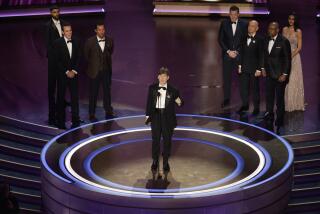Sound pioneer Ray Dolby of Dolby Laboratories dies at 80
- Share via
Ray Dolby, the inventor and engineer who founded Dolby Laboratories and pioneered noise-reducing and surround-sound technology widely used in the film and recording industries, has died in San Francisco at 80, the company announced Thursday.
Dolby had been living with Alzheimer’s disease in recent years and was diagnosed in July with acute leukemia, the company said.
“Today we lost a friend, mentor and true visionary,” Dolby Laboratories President and Chief Executive Kevin Yeaman said in a statement. “Ray Dolby founded the company based on a commitment to creating value through innovation and an impassioned belief that if you invested in people and gave them the tools for success they would create great things. Ray’s ideals will continue to be a source of inspiration and motivation for us all.”
Dolby, born in Portland, Ore., was a precocious inventor. While attending high school in San Francisco and then at Stanford University, Dolby worked at Ampex Corp., where he was the chief designer of the first practical videotape recording system.
By the end of his life, he held more than 50 patents and had received two Oscars for scientific and technical achievement, several Emmys and a Grammy.
“My father was a thoughtful, patient and loving man, determined to always do the right thing in business, philanthropy, and as a husband and father,” said David Dolby, his son and a member of Dolby Laboratories’ board of directors. “Our family is very proud of his achievements and leadership. He will be sorely missed, but his legacy of innovation will live on.”
Dolby is survived by his wife, Dagmar, his sons Tom and David, their spouses Andrew and Natasha, and four grandchildren.
ALSO:
James Wan, director of ‘The Conjuring’ and ‘Insidious, bounces back
Warner Bros. to release ‘Harry Potter’ spinoff
Review: Harry Dean Stanton documentary paints lyrical portrait
More to Read
Only good movies
Get the Indie Focus newsletter, Mark Olsen's weekly guide to the world of cinema.
You may occasionally receive promotional content from the Los Angeles Times.









